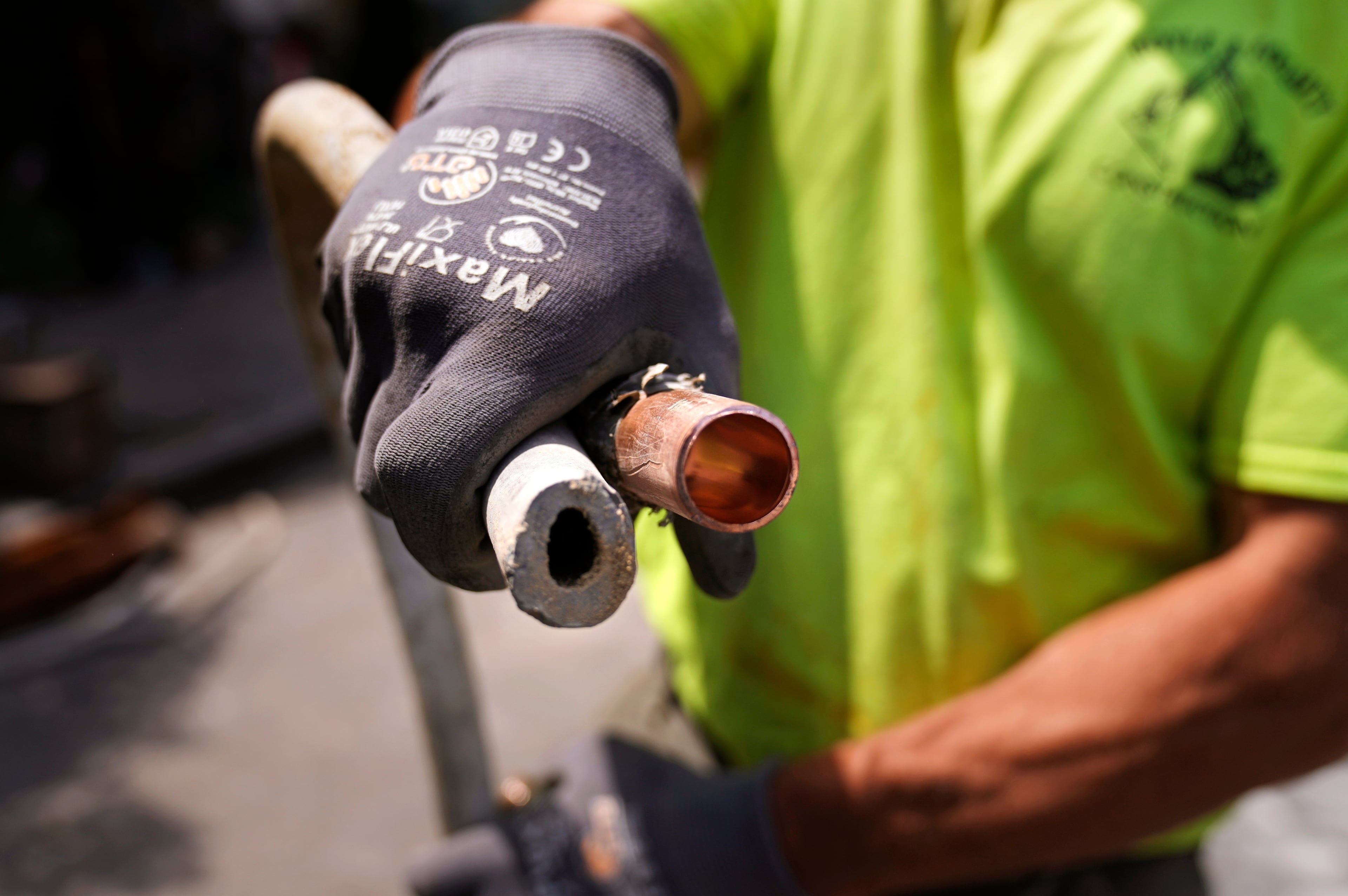Georgia Power says it will turn more of its toxic coal ash into concrete

Georgia Power has millions of tons of toxic coal ash stored at sites around the state, the result of decades of burning coal at its power plants. Now, more of that material is set to be used to build bridges and roads around the country.
On Wednesday, the company announced plans to partner with a cement alternatives producer to harvest coal ash at another site — Plant Branch near Milledgeville — for use in concrete mixes.
Coal ash is a dust-like residue left behind from burning coal in power plants. It contains heavy metals like mercury, cadmium and arsenic, which can contaminate water supplies if not handled properly, according to the EPA. But the material is a useful additive in concrete, improving the strength and durability of the material.
Plant Branch’s coal-fired plant shuttered in 2015, but Georgia Power still has millions of tons of coal residuals sitting in watery lagoons called ash ponds on the site. The company is in the process of drying the material out, and the reuse project will keep much of the ash out of an on-site landfill when it begins operation in 2026.

Once online, the project will yield 600,000 tons of usable ash each year, according to Georgia Power. Over its expected 15-year duration, the company said 8 million tons of ash will be excavated and processed for use in ready-mix concrete. Georgia Power is partnering on the reuse project with Eco Material Technologies, a Danville, Pennsylvania-based concrete alternatives producer.
This will be the third ash recycling project the companies have worked on together. Coal ash is already being reclaimed at Plant Mitchell, a retired coal power station near Albany that closed in 2016. Last year, Georgia Power announced plans for a similar effort at Plant Bowen outside Cartersville. Construction is underway on that project, with ash harvesting expected to begin next year.
Georgia Power is still producing ash at its few remaining coal-burning power plants, but says it now funnels more than 90% of that material into the concrete alternatives market.
Reusing the ash helps solve multiple environmental issues.
First, producing cement for construction is an energy-intensive process that accounts for roughly 8% of global greenhouse gas emissions. Using existing coal ash in place of new cement can reduce the sector’s environmental impact.
Second, it keeps coal ash out of landfills, where it has the potential to contaminate soil and waterways with toxins.
“In addition to reducing the amount of ash going to a landfill and complementing our closure plans, projects such as this bring additional jobs and positive economic impact for the local community,” Jennifer McNelly, Georgia Power’s vice president of environmental affairs, said in a statement.
In a statement, Grant Quasha, the CEO of Eco Material Technologies, said he hopes the Plant Branch project will be a “model for the rest of the country on how to efficiently re-use stored coal ash.”
Still, permanently disposing of the remaining coal ash Georgia Power has stored around the state will be a costly endeavor for the company and its customers.
In a report on its disposal plans filed with state regulators this month, Georgia Power estimated it will spend $7.8 billion over the next 60 years to remove and store the material, down slightly from the $7.9 billion it projected in March. Georgia Power customers are already paying for the clean-up and will likely be saddled with much of the remaining bill, too. The company says it will use revenue from selling ash to offset the cost of closing its ponds.
Environmental groups, meanwhile, continue to raise questions about the safety of the company’s ash pond closure plans at some sites.
At Plant Hammond near Rome, Plant McDonough south of Vinings, Plant Scherer outside Macon and Plant Yates near Newnan, Georgia Power plans to cap and permanently store millions of cubic feet of coal ash in unlined pits with material submerged in groundwater. Environmentalists say that could contaminate the water supplies in surrounding communities, and may also fall short of meeting federal standards.
Georgia Power has repeatedly said it will work with state regulators at the Georgia Environmental Protection Division (EPD) to develop plans that protect public health and comply with all closure rules.
So far, EPD has not issued final permits to any of the sites in question.



